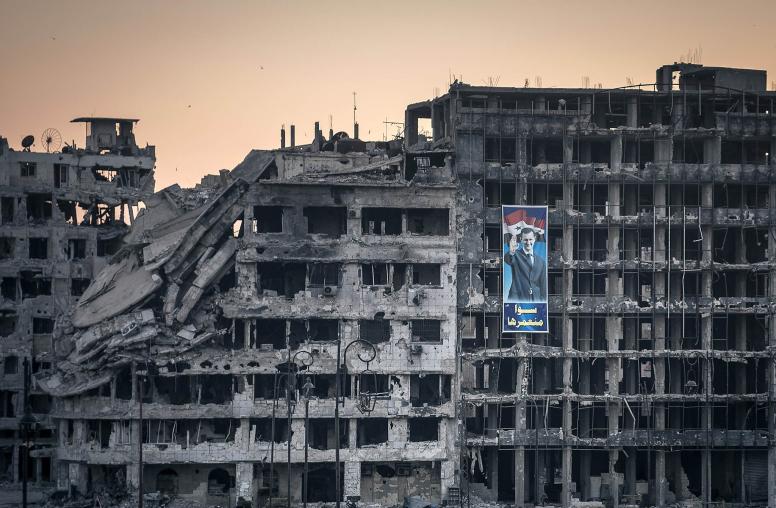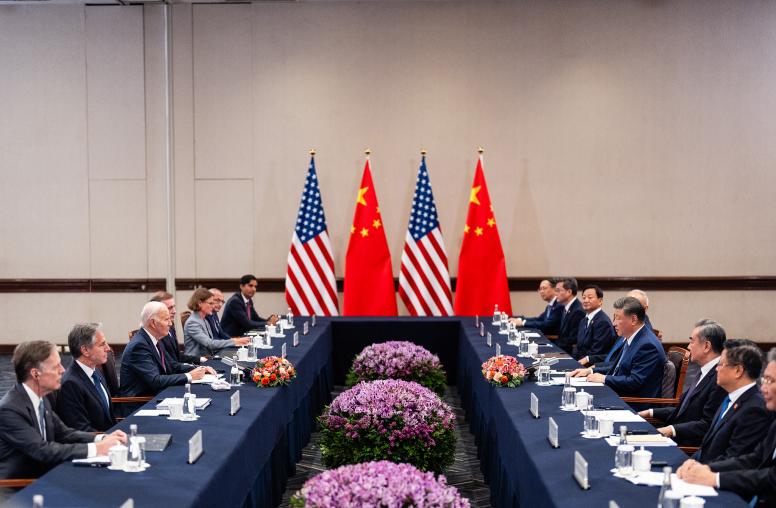Research & Analysis
U.S. Institute of Peace’s articles, reports, tools and other features provide policy analysis, research findings, and practitioner guides. These publications examine critical conflict issues at the center of the Institute’s work to prevent and resolve violent conflict.
The views expressed in these publications are those of the author(s).

Russia’s Nuclear Doctrine Amendments: Scare Tactics or Real Shift?
Since the onset of Russia's full-scale invasion of Ukraine on February 24, 2022, Moscow has relied on nuclear coercion and compellence to shape Western decision-making. On November 19, 2024, President Vladimir Putin approved amendments to Russia's nuclear doctrine, signaling a lowered threshold for nuclear first use. While the 2024 amendments introduce new details to possible scenarios for Russia’s use of nuclear weapons, they do not constitute a significant departure from previous doctrine.

Can India Advance Peace in Ukraine?
Since the start of Russia’s war in Ukraine, India has worked to protect its strategic relationship with Russia while maintaining its burgeoning ties with the United States and Europe. India’s balancing act was on display earlier this year when Prime Minister Narendra Modi visited Russia in July and made a historic trip to Ukraine the following month. Modi has portrayed a neutral stance on the Ukraine war and positioned India as a key player in any potential peace process.

Donald Jensen on the War in Ukraine’s Trajectory
As Ukraine considers the “politically loaded” question of whether to lower the age of military mobilization, Putin increasingly sees the war “not just as a land grab, but as a civilizational battle between Russia and the West,” says USIP’s Donald Jensen, adding: “We should not think that the war is anything close to being settled.”

Ukraine: The Inflection Point in the China-Russia Axis
The ongoing conflict in Ukraine has catalyzed a profound shift in global power dynamics: the deepening of the partnership between China and Russia. This relationship, while rooted in history, represents a significant departure from previous patterns of cooperation. China-Russia ties have evolved from a transactional relationship of convenience to a more durable strategic alignment, while continuing to fall short of a full-blown military alliance. This development challenges traditional Western assumptions about the limits of authoritarian cooperation and may signal the emergence of a new model of international partnership.

Mona Yacoubian on the Regional Reverberations of Assad’s Fall
The fall of Assad is “nothing short of a tectonic shift in power” across the Middle East, with Iran emerging as “the biggest loser” and Turkey “positioned to be a big winner,” says USIP’s Mona Yacoubian. But “the situation is going to bear very close watching … the stakes in Syria aren’t just regional, they’re global.”

Iran and Russia Are the Biggest Regional Losers of Assad’s Fall
Among the central factors that led to the ouster of Syrian dictator Bashar al-Assad was Iran’s and Russia’s decisions to not intervene yet again to prop him up. Tehran had long used Syria as vector to project influence in the region and marshalled significant resources and manpower to keep Assad in power when the Syrian civil war erupted in 2011. Moscow similarly saw its ties with Assad as a source of regional influence, and its 2015 intervention in Syria was decisive in Assad maintaining his stranglehold on power.

Protecting Water Infrastructure During War
The weaponization of water resources is among the most devastating tools used in violent conflict. And while this tactic has been pervasive throughout history, it’s on the rise. State and non-state actors across the globe are increasingly exploiting the capture, control and outright destruction of water resources and related infrastructure to inflict indiscriminate human suffering and further their own strategic and military aims. To put this devastating trend into historical context: Out of all the recorded incidents targeting water infrastructure over the last 2,000 years, 41 percent have occurred since 2020.

China and Ukraine: Pulling Its Weight with Russia or Potemkin Peacemaker?
On Thursday, China’s ambassador, Ma Shengkun, presented his credentials at Ukraine’s Foreign Ministry. Ma, a career diplomat with a background in arms control, replaces Fan Xianrong who had held the post for the past four and a half years. While a diplomatic reshuffle was due, the timing of the turnover and the selection of Ma, in tandem with other recent developments, suggest that China discerns a gradual gathering of momentum for a peace process or truce talks in coming months. In short, Beijing may be seeking to posture itself in anticipation of a new initiative to end — or at least pause — the war in Ukraine.

U.S. Concerns Over ‘Axis of Authoritarianism’ Cloud Final Biden-Xi Meeting
With President Joe Biden’s presidential term ending in a few weeks, expectations for his final meeting with Chinese leader Xi Jinping were modest, especially considering the broader frictions in U.S.-China relations. Biden and Xi met on the sidelines of the Asia-Pacific Economic Cooperation summit in Peru on November 16. The meeting highlighted the importance of maintaining open communications channels to manage the two powers’ many differences.

China’s Dilemmas Deepen as North Korea Enters Ukraine War
Until late October, the big questions about China’s role in the Ukraine conflict centered around whether Beijing would choose to expand its support for Russia to include lethal aid, or if it might engage in more active peacemaking to end the conflict. Then, on November 4, the Pentagon confirmed that North Korea sent more than 10,000 troops to Russia’s Kursk oblast, where Ukraine had captured some territory earlier this year. Days later, the State Department confirmed that North Korean soldiers had begun fighting Ukrainian troops.